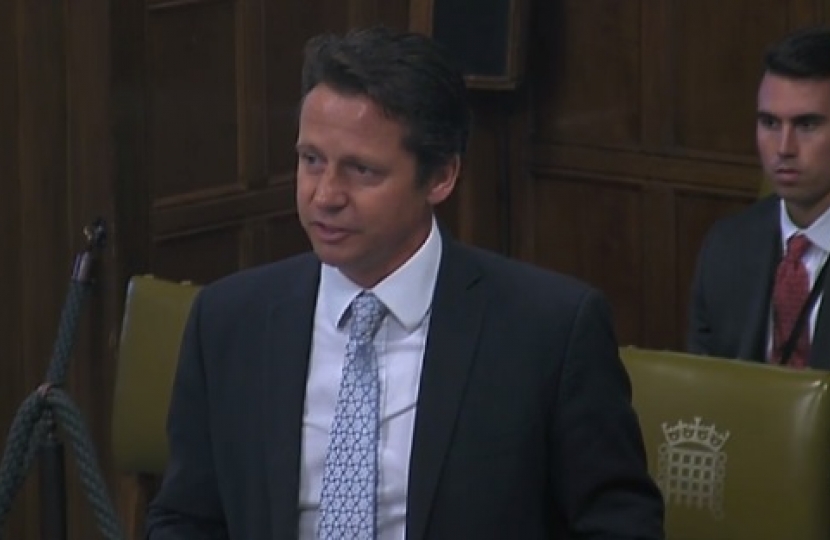
On Wednesday 13th September, I contributed to a debate on the barriers to women standing for Parliament.
Earlier in the day, I had questioned the Prime Minister in the House of Commons Chamber during Prime Minister’s Questions about what more should be done to get more talented women in Parliament. In her response, the Prime Minister had noted my role as a mentor for Women2Win – an organisation which seeks to ensure more Conservative women are selected to fight winnable seats – and reaffirmed the Conservative Party’s commitment to using the female role models already in Parliament to encourage more women to stand.
I opened my speech by describing my shock that when I was first elected in 2015, there were more male MPs in that Parliament alone than there had ever been female MPs elected. In addition to being morally right, increasing gender diversity in Parliament would bring significant benefits and make Parliament a better place. I also spoke of the qualities I've noticed of my female colleagues: adopting a different tone in debates, being more willing to work cross-party and calling debates on a broader range of issues.
I echoed calls made by colleagues to explore measures such as proxy or digital voting which would make Parliament a more family-friendly working environment. I also cautioned against the use of quotas or all-women shortlists, stating that there was no moral superiority in simply replacing one form of discrimination with another. No matter how well intended it may be, positive discrimination ultimately still prevents an otherwise qualified person from being elected on the basis of their gender.
I also spoke of the abuse often directed at female MPs and said that while there were steps the parties could and should take in increasing female representation, the public had a role to play too. If you want to have more female MPs, perhaps stop abusing the ones we’ve got already.
I was glad to have the opportunity to contribute to this debate and show the strength of feeling on removing barriers to women standing in Parliament. While some progress had been made, just 32% of MPs are women and the UK is ranked 46th in the world for female representation. We all have a part to play in encouraging women to stand for Parliament and providing advice and support if they decide to do so. All parties should proactively engage with women and ensure that local associations, as well as the national party structures, are welcoming environments for both genders. I will continue playing my part and call on my colleagues across the House to do the same.
You can watch my speech in full by clicking here.
